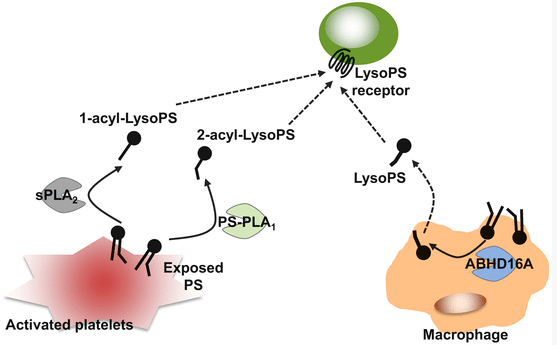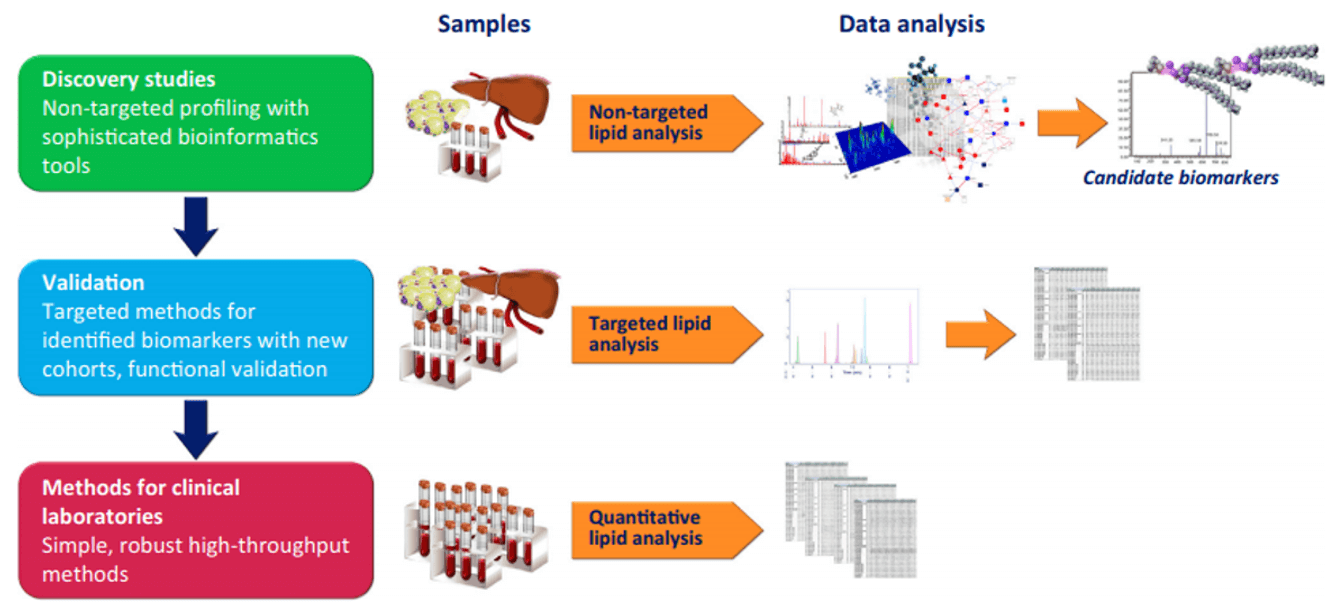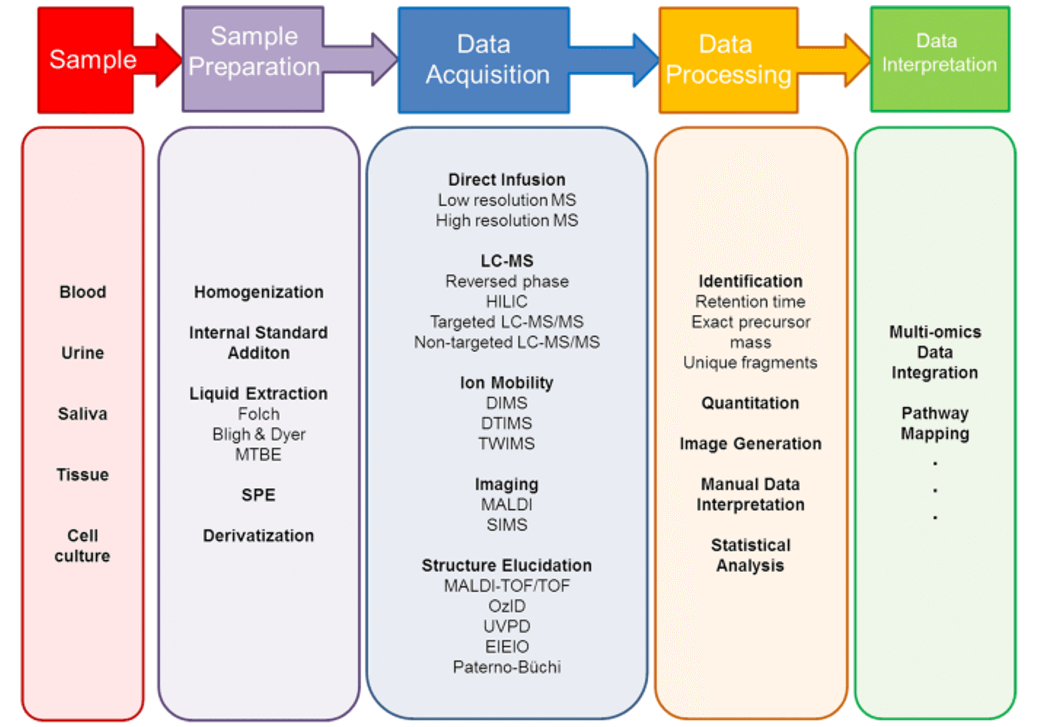Lysophosphatidylserine Analysis Service
Lysophospholipids are effective hormone-like signaling biological lipids, which can regulate many important biological processes in mammals (including humans). Lysophosphatidylserine (LysoPS) is an emerging lysophospholipid (LPL) mediator that acts through G protein-coupled receptors, such as lysophosphatidic acid (LPA) and sphingosine 1-phosphate (S1P). LysoPS has been detected in various tissues and cells, and is believed to be mainly produced by the deacylation of phosphatidylserine.
The biological effects of LysoPS are closely related to the mode of presentation in the body. With the assistance of other signaling molecules in the serum, LysoPS can stimulate mast cells to release histamine, which may be involved in diseases related to platelet activation. LysoPS can also attenuate the expression of inflammatory mediators in macrophages and limit the development and function of regulatory T lymphocytes.
 Fig 1. Producing pathways of LysoPS (Makide et al., 2016)
Fig 1. Producing pathways of LysoPS (Makide et al., 2016)
In order to help you better understand the relationship between LysoPS and disease pathogenesis, discover relevant markers, and facilitate research on disease diagnosis and drug development, Creative Proteomics has established an efficient and accurate assay platform based on LC-MS/MS technology to provide you with qualitative and quantitative lysophospholipids assay services.
Our Lysophosphatidylserine Analysis Service
Absolute quantification: Use external standard method to quantify, and use internal standard for correction, qualitative and quantitative is more accurate.
High sensitivity: We use liquid chromatography coupled with triple quadrupole mass spectrometers for lysophospholipids analysis service (Triple Quad™ 6500 LC-MS/MS System).
 Fig 2. The workflow of lysophospholipid analysis service
Fig 2. The workflow of lysophospholipid analysis service
Sample Requirements
We routinely cover a rich variety of sample types, including cells, tissue, blood, plasma, et al.
According to different experimental schemes, we usually need 200-300 ul plasma for our LPS targeted lipidomics services. We can also collect plasma according to your experimental design.
For tissue, the amount used should be empirically determined beforehand based on tissue type used. We usually need 10-50 mg tissue for our LysoPS analysis services.
Why Choose Us?
- Fast turnaround time: Quality lipidomics services at a low price and fast turnaround time. Send us your samples and receive your results within 1-4 weeks.
- High throughput: Only one injection can run both quantitative MRM and qualitative QTRAP scans to maximize throughput.
- One-stop analysis service: Provide comprehensive services from sample preparation, standard addition, mass spectrometry analysis, data processing, and data comparison.
- Detailed report: Experimental process, MS/MS instrument parameters, quality control parameters, raw data and the final result of the comparison.
- We will use our expertise to help you interpret the results and provide you with actionable recommendations on how to utilize these results in your research or business.
If you have any questions about our lysophospholipid detection service, please contact us.
References:
- Makide et al. Lysophosphatidylserine as an Inflammatory Mediator. Chronic Inflammation. 2016. 501-509.
- Makide K et al. Emerging lysophospholipid mediators, lysophosphatidylserine, lysophosphatidylthreonine, lysophosphatidylethanolamine and lysophosphatidylglycerol. Prostaglandins & other lipid mediators. 2009, 89(3-4): 135-139.
* Our services can only be used for research purposes and Not for clinical use.
Services:
Resource:
Platform:


 Fig 1. Producing pathways of LysoPS (Makide et al., 2016)
Fig 1. Producing pathways of LysoPS (Makide et al., 2016) Fig 2. The workflow of lysophospholipid analysis service
Fig 2. The workflow of lysophospholipid analysis service
